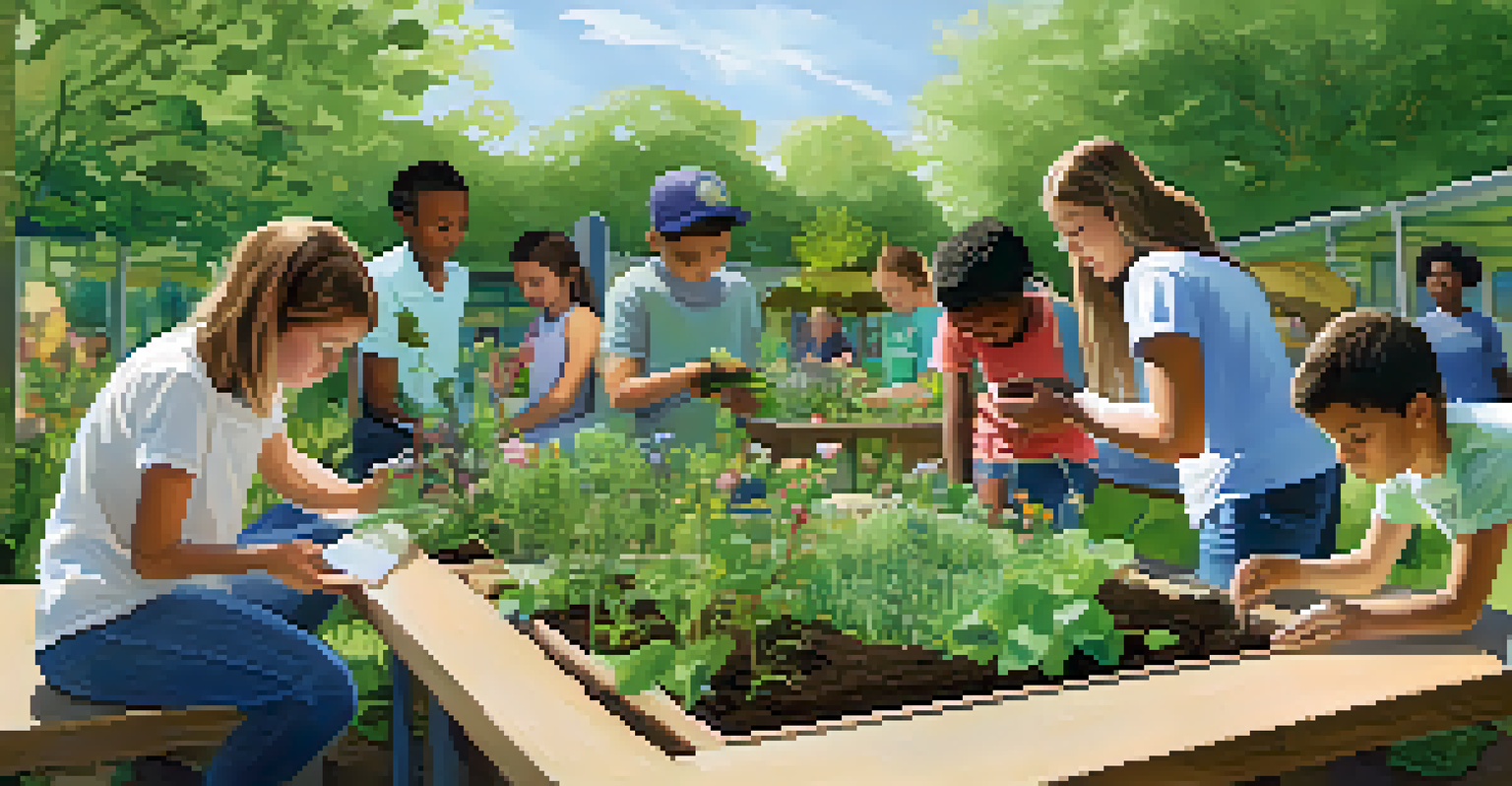Innovative Programs: Engaging Communities Through Libraries

Libraries as Community Hubs: A New Role
In today's digital age, libraries are evolving from mere book repositories to vibrant community hubs. They're becoming spaces where people gather, share ideas, and engage in meaningful conversations. This transformation is vital as it reflects the changing needs and interests of the community.
Libraries are not just places for books; they are community centers that foster learning and collaboration.
By hosting events such as workshops, lectures, and social gatherings, libraries foster a sense of belonging among residents. These activities not only encourage learning but also promote social interaction, reinforcing community bonds. For example, a local library might host a weekly book club that invites diverse voices to share their perspectives.
Ultimately, this new role helps libraries connect with residents on a deeper level, enabling them to cater to the unique needs of their communities. As libraries embrace this function, they become more than just places to borrow books—they become essential pillars of community life.
Innovative Programs: Engaging All Ages
One of the most exciting aspects of modern libraries is their ability to create innovative programs that engage all age groups. From storytime sessions for toddlers to tech workshops for seniors, libraries cater to diverse interests and needs. This inclusivity ensures that everyone feels welcome and valued.

For instance, some libraries have introduced coding classes for children, allowing them to explore technology in a fun, interactive way. Similarly, they may offer health and wellness programs for adults, such as yoga classes or nutrition workshops. These initiatives not only provide valuable skills but also promote lifelong learning.
Libraries as Community Hubs
Libraries are transforming into vibrant community spaces that foster social interaction and a sense of belonging.
By addressing the interests of various age groups, libraries not only enhance their relevance but also strengthen community ties. Engaging programs create opportunities for interaction and collaboration, ensuring that the library remains a focal point for community engagement.
Digital Literacy: Bridging the Technology Gap
In an increasingly digital world, libraries play a crucial role in promoting digital literacy. Many community members may struggle to navigate technology, which can hinder their access to essential services and information. Libraries are stepping up to bridge this gap and empower individuals with the skills they need.
A library is the delivery room for the birth of ideas, a place where history comes to life.
Through workshops and one-on-one training sessions, libraries teach patrons how to use computers, smartphones, and various online platforms. For example, a library might offer a course on how to apply for jobs online, equipping job seekers with the necessary tools to succeed. Such programs not only enhance individual skills but also foster economic growth within the community.
By prioritizing digital literacy, libraries ensure that no one is left behind in the digital age. This commitment to education and empowerment strengthens community connections and helps residents thrive in an ever-evolving technological landscape.
Cultural Programs: Celebrating Diversity
Libraries are increasingly embracing cultural programs that celebrate the diverse backgrounds of their communities. These initiatives encourage understanding and appreciation of different cultures through art, music, literature, and food. By shining a spotlight on various traditions, libraries foster inclusivity and unity.
For example, a library might host an annual multicultural festival, featuring performances, workshops, and storytelling sessions from different cultures. Such events not only entertain but also educate attendees about the richness of diverse perspectives. They create a space where community members can share their unique stories and experiences.
Innovative Programs for All Ages
Modern libraries offer diverse programs that engage all age groups, promoting learning and community ties.
By promoting cultural awareness, libraries help build a more cohesive community. These programs encourage dialogue and understanding, paving the way for stronger relationships among residents, irrespective of their backgrounds.
Collaborative Partnerships: Strengthening Community Ties
Libraries are increasingly forming collaborative partnerships with local organizations, schools, and businesses to enhance their community engagement efforts. These partnerships allow libraries to pool resources and expertise, creating programs that better serve local needs. By working together, they can make a greater impact.
For example, a library might partner with a local school to provide after-school homework help for students. Or, they might collaborate with a health organization to offer free health screenings and workshops. Such initiatives not only address specific community challenges but also foster a sense of shared responsibility.
Through these partnerships, libraries become integral players in the community's ecosystem. They help to strengthen relationships among various stakeholders, ensuring that the library remains a vital resource for residents.
Sustainability Initiatives: Libraries Leading by Example
In response to growing environmental concerns, many libraries are adopting sustainability initiatives to promote eco-friendly practices. This commitment not only showcases their leadership but also educates the community about the importance of sustainable living. Libraries are setting an example for residents to follow.
For instance, some libraries have implemented programs that teach patrons about gardening, composting, and recycling. Others may host workshops on how to reduce waste or harness renewable energy. By providing practical knowledge, libraries empower residents to make environmentally conscious choices.
Bridging the Digital Divide
Libraries are essential in promoting digital literacy, empowering community members with vital technological skills.
Ultimately, these sustainability initiatives strengthen the connection between libraries and their communities. As residents engage with these programs, they become more aware of their environmental impact and are inspired to take action.
The Future of Libraries: Adapting to Change
As we look to the future, it's clear that libraries will continue to adapt to the evolving needs of their communities. The ongoing integration of technology, innovative programming, and community engagement will shape their role as vital resources. Libraries are not just keeping up; they are leading the way in community development.
For instance, many libraries are exploring virtual programming options to reach a broader audience. This shift allows them to connect with individuals who may not be able to visit in person. Additionally, as demographics change, libraries are likely to introduce new programs tailored to emerging needs and interests.

By embracing change and innovation, libraries ensure their relevance in an ever-shifting landscape. They continue to be champions of community engagement, fostering connections and enriching lives for generations to come.